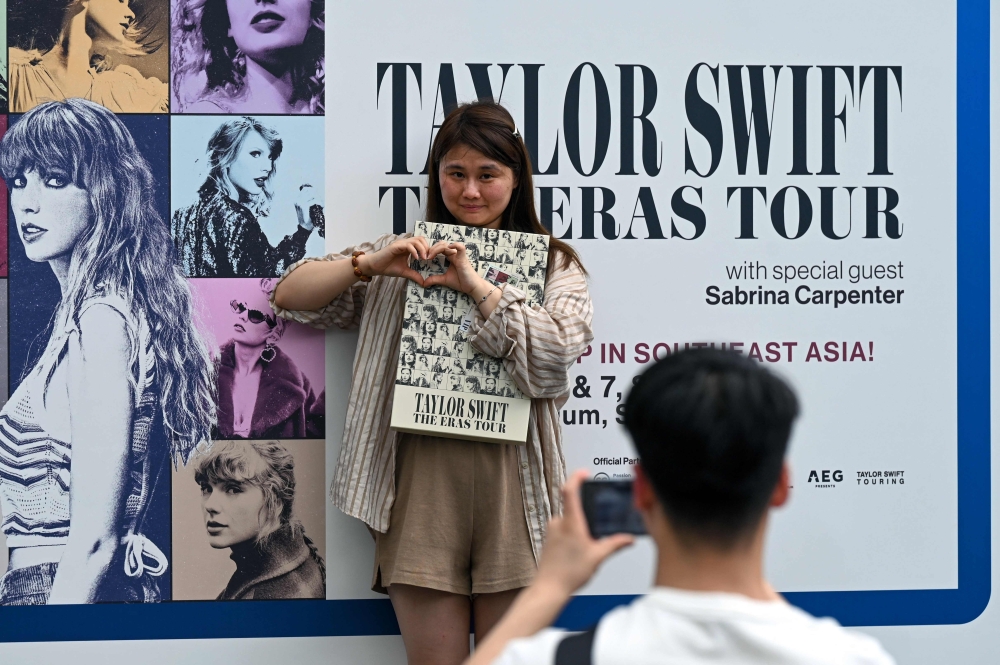The rise in concert ticket scams targeting Taylor Swift fans has become a concerning issue in the UK. According to Lloyds Bank, at least 3,000 victims have fallen prey to these scams since July, resulting in losses exceeding £1 million. The average amount lost per victim is around £332, with some cases involving losses of over £1,000. The bank highlighted that more than 90 percent of reported cases originated from fake advertisements or posts on Facebook. In fact, concert ticket scams have surged by 158 percent compared to the same period last year, with artists like Beyonce, Coldplay, and Harry Styles commonly used as bait.
The method by which these scams operate is quite straightforward – scammers lure unsuspecting fans with fake adverts offering tickets at discounted rates or access to sold-out events at inflated prices. Payment is usually requested upfront, typically via bank transfer, and once the transaction is completed, the scammers vanish, leaving buyers empty-handed and out of pocket. Lloyds Bank’s fraud prevention director, Liz Ziegler, warns that any requests for payment via bank transfer, especially from sellers on social media, should raise red flags. To ensure the authenticity of tickets, buyers are advised to purchase directly from authorized platforms and make payments using debit or credit cards for added protection.
Illustrating the extent of the issue, a search on Facebook revealed numerous unofficial groups established specifically for buying and selling tickets to Taylor Swift concerts. These groups, some boasting tens of thousands of members, serve as fertile ground for scammers to prey on unsuspecting fans. Furthermore, Facebook Marketplace, the company’s trading platform, features numerous listings for tickets at various venues across the country. The prevalence of these fake adverts and listings on social media highlights the need for increased awareness among fans to avoid falling victim to these fraudulent schemes.
The surge in concert ticket scams not only affects Swifties but also fans of other popular artists, with victims across all ticketing scams losing an average of £133. It is evident that scammers are exploiting the excitement and anticipation surrounding high-demand events to deceive fans and make a quick profit. As such, it is imperative for fans to exercise caution and conduct due diligence when purchasing tickets from unofficial sources. By adhering to safe practices, such as verifying the legitimacy of sellers and using secure payment methods, fans can protect themselves from falling victim to these deceptive tactics.
In response to the escalating prevalence of concert ticket scams, both fans and authorities need to work together to combat this issue effectively. Fans are encouraged to stay informed about common scam tactics, report suspicious activity, and only purchase tickets from reputable and authorized sellers. Meanwhile, authorities should continue to crack down on fraudulent schemes, track down perpetrators, and educate the public on how to spot and avoid falling victim to such scams. By fostering a collective effort to raise awareness and promote safe ticket purchasing practices, fans can protect themselves from falling prey to deceptive concert ticket scams and ensure a memorable and enjoyable concert experience with their favorite artists.
In conclusion, the surge in concert ticket scams targeting Taylor Swift fans in the UK serves as a stark reminder of the importance of vigilance and caution when purchasing tickets for high-demand events. As the excitement builds for Swift’s upcoming tour, fans must remain alert to fraudulent activity, verify the authenticity of tickets, and prioritize secure payment methods to safeguard against scams. By taking proactive measures and staying informed, fans can protect themselves from falling victim to these deceptive tactics and ensure a positive and enjoyable concert experience. Together, fans, authorities, and platforms must collaborate to combat concert ticket scams effectively and preserve the integrity of live event ticketing.











